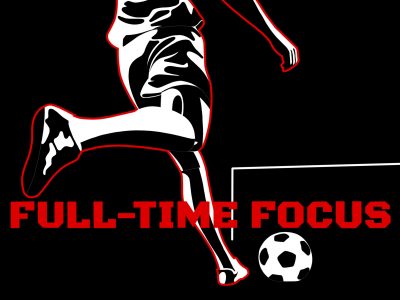The Champions League’s influence on individual awards was diminished Monday when Manchester City’s Rodri won the Ballon d’Or player of the year award over Vinicius Junior in a ceremony organized by France Football magazine and UEFA.

Rather than seeing this as a sign that the competition has lost its purpose, many argue that it’s the Ballon d’Or itself that has lost credibility.
The Ballon d’Or awards the world’s top football player based on three main criteria: individual performance and impact, team accomplishments and sportsmanship. An international jury of journalists, which includes one representative from each of the top 100 FIFA-ranked countries, decides the winner.
Throughout the last few decades, collective trophies have played an important role in deciding who deserves the award. At the end of the day, an impressive individual performance does not have an impact if it does not lead to a championship.
Since 2000, more than half of the Ballon d’Or winners — 11 out of 21 — have come from Champions League-winning teams, which is a fact that highlights the prestige of the European competition in years without a World Cup. For example, in 2023, Messi won the Ballon d’Or for his significant contributions to Argentina on the global stage, and not necessarily for his domestic league impact.
In the months ahead of the Ballon D’Or ceremony, there was a clear favorite to win the award: Vinicius Junior.
The Brazilian was the most decisive player last season by all metrics, even after injuries disrupted Vini’s first half of last season, leaving him sidelined for 75 days between August and January, according to Transfermarkt.
Even with two separate injuries, he still recorded 15 goals and five assists, which put him sixth in the division.
What was incredible about Vinicius’ season wasn’t his goal tally –– it was his timing. The Real Madrid star displayed high levels of skill and composure when his team needed it most. He was the second-highest scorer for the 2023-24 season.
The cherry on top is that these great individual performances can be backed up with collective awards. Last season, Real Madrid won La Liga, which is the Spanish Super Cup, and most importantly, the Champions League.
The most disappointing aspect of this situation isn’t that Vinicius Jr. didn’t win, it’s how the loss unfolded. Buildup had confidently assured the world the Brazilian star would be the winner.
So what happened?
Before Rodri was awarded the Ballon D’Or, Real Madrid was so confident about Vinicius’ win that they prepared to send a 50-person party to the ceremony in Paris, along with an hours-long TV broadcast.
Junior’s camp learned Sunday evening that he wouldn’t be winning the award after contacts within the Spanish football federation indicated that Rodri had secured it.
This leaves us with the post-ceremony debate: Why did Rodri win it?
Rodri is the best player in the world at the pivot position. Under Guardiola’s command and Manchester City’s great squad, he has been able to accomplish great things, like the treble two seasons ago and the Premier League last season.
Winning the Euros with Spain solidified Rodri’s status as a great player in the domestic and international stage, which is something Vinicus has yet to achieve.
This event spurs many discussions moving forward. Did Rodri really deserve it? What importance do international competitions have in being decisive? What does Real Madrid’s Ballon d’Or boycott mean for the future?
However, the most important precedent this sets is the implication that winning the Champions League will no longer be regarded as a high enough reason to win the Ballon d’Or.




















































































































